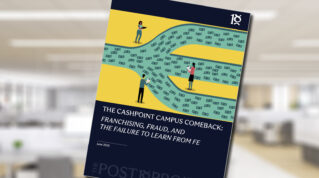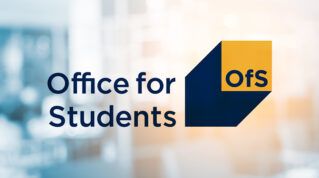Accepting students with T Levels is more complicated than it looks, writes Nick Hillman
There is just one objective of university admissions: getting the best match between applicants and places. Delivering this single goal can be difficult.
In pre-pandemic times, the job of university admissions officers was sometimes compared to landing a jumbo jet on a postage stamp. It is even harder now, due to soar-away grade inflation and record application rates.
One challenge is the multitude of level 3 qualifications, such as A-levels, BTECs and dozens of qualifications taken by international students. Nor is it a static picture, as shown by the current phasing out of the pre-U qualification and the rise and fall of Labour’s flagship level 3 diploma.
Now, the government wants level 3 BTECs, which are taken by around a quarter of a million students each year, to be largely replaced by T Levels.
In late 2021, ministers asked universities “to accept T Levels for entry to, at a minimum, all courses of study for which you currently accept other technical qualifications”.
But as FE Week revealed last week, not all universities have responded positively to this edict. This newspaper reported that less than half of all UK universities have confirmed they will accept T Levels for entry this year, with most Russell Group universities opting out. This is causing huge frustration for students and staff.
I share this frustration. Young people typically do not lack aspiration but they often lack knowledge on how to turn their aspirations into reality. So when some institutions are unclear if the new T Levels are an acceptable entry qualification, it is no wonder there is disquiet.
I have urged universities to ensure that they understand T Levels, and to consider these applications fairly. And when it seems T Levels will not provide effective preparation for a specific course, I have urged them to make this really clear too.
But despite the need for some institutions to do more, universities have been stuck between a rock and a hard place on T Levels.
Accepting T Levels now might look fair to applicants, but the situation is more complicated than that for at least three reasons.
1. The U-turn on maths and English
The rollout of T Levels has been far from smooth. In November education secretary Nadhim Zahawi abolished the requirement for T Level students to achieve GCSE-level English and maths by the end of their course.
This U-turn makes T Levels less effective preparation for higher-level study than was expected.
2. Possible drop-out rates
Universities will be rightly criticised if they let in more people who then drop out.
In the past, universities have been so flexible with regard to vocational qualifications that around one-quarter of students now arrive with BTECs. Yet BTEC students are twice as likely to drop out in their first year, according to research published last week by the Nuffield Foundation.
So it is not unreasonable for some higher education institutions to be wary about letting in students holding an untested vocational qualification.
3. Universities are autonomous
We have the best universities in Europe, because we have the most autonomous universities in Europe. That autonomy is reflected in primary legislation on admissions.
No one ̶ not even the education secretary or the new director for fair access and participation at the Office for Students ̶ can tell universities exactly who to admit. So policymakers would be better off using carrots rather than sticks.
Policymakers should use carrots rather than sticks
Ministers should discuss with universities whether there are enough resources to ensure applicants with T Levels will thrive on degree courses. In return, universities should, wherever possible, give the benefit of the doubt to those applicants who are T Level guinea pigs.
But in the meantime, it would be wholly premature to start shutting down the proven BTEC route.
Historically, education policy tends to go wrong when it is reduced to simple binary divisions, as with grammar schools and secondary moderns, or polytechnics and universities.
The idea that providing only two main educational routes for most young people – A-levels and T Levels – is a sensible response to the complexity of the modern world makes similarly little sense.

















Your thoughts